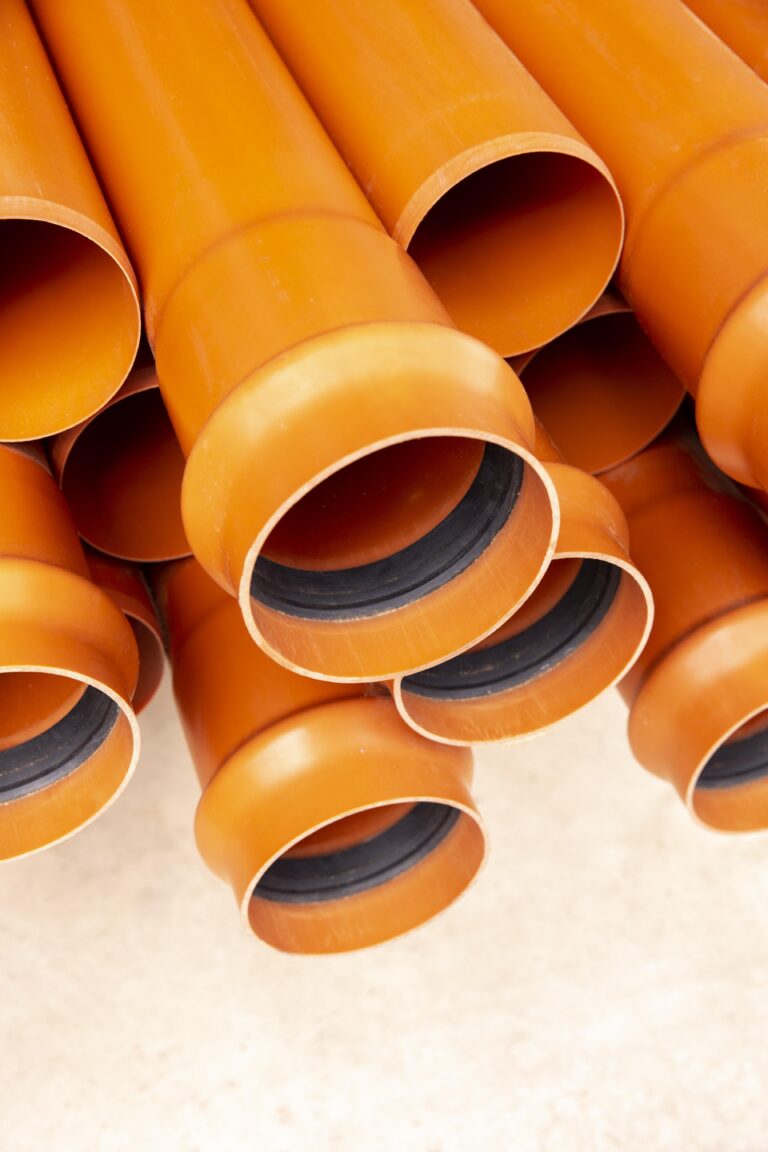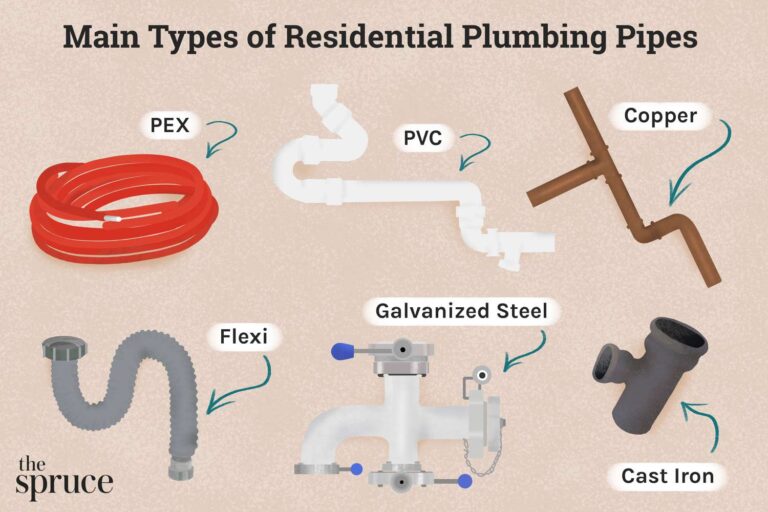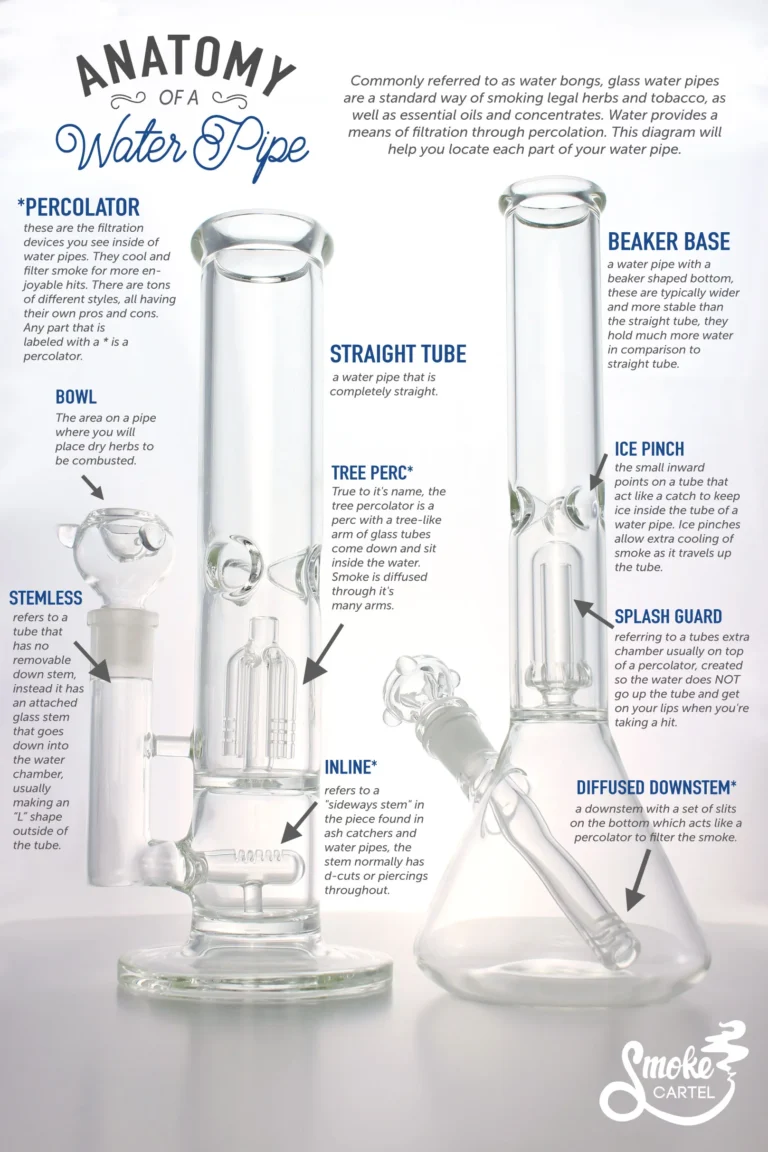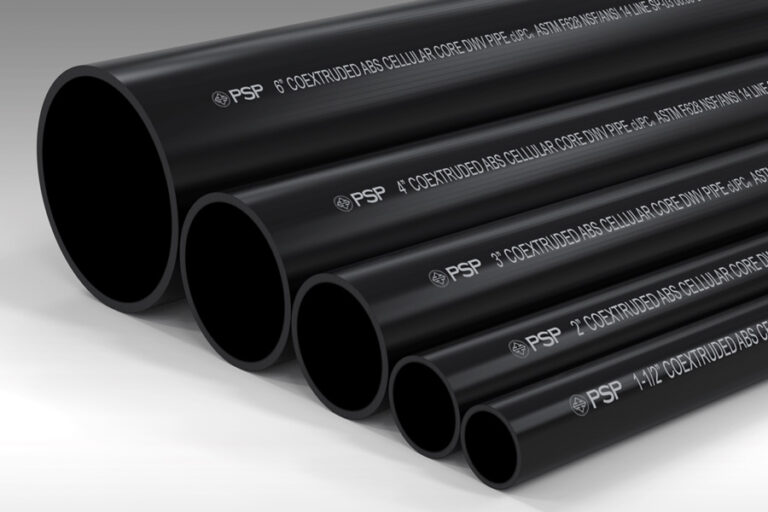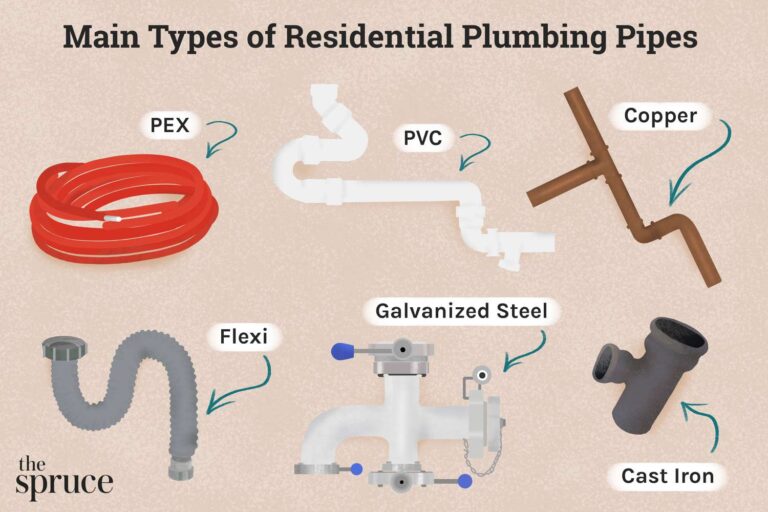How Many Types Of Pipes Are There In Water Supply?
Pipes play a critical role in the water supply system, forming a network of channels that deliver water from the source to each household. There are several different types of pipes used in water supply systems, each with its own unique characteristics and advantages. The most commonly used pipes in water supply systems are plastic, steel, copper, and lead. Plastic pipes are lightweight, durable, and easy to install, making them an ideal choice for residential applications. Steel pipes are strong and can withstand extreme temperatures and pressures, making them suitable for industrial applications. Copper pipes are corrosion resistant and can be used in cold or hot water supply systems. Lead pipes are the most traditional option but are no longer approved for use in many areas due to health concerns.
Overview of Water Supply Pipe Types
Water supply pipe types are an essential component of any plumbing system. They provide the necessary connection points between water fixtures, such as toilets, sinks, and showers, and the main plumbing lines that feed them. There are several types of water supply pipe, each with varying characteristics, benefits, and drawbacks. This overview will discuss the most common types of water supply pipe, including galvanized steel, polyvinyl chloride (PVC), cross-linked polyethylene (PEX), copper, and polypropylene (PP). Each type of pipe has its own advantages and disadvantages, so it is important to understand the differences between them in order to make an informed decision about which water supply pipe to use in your home.
Advantages and Disadvantages of Different Types of Pipes
Pipes are a crucial part of plumbing and many people don’t think about them until there is a problem. Learning the advantages and disadvantages of different types of pipes can help you choose the right one for your plumbing project. PVC pipes are a popular choice for home plumbing due to their light weight, low cost, and easy installation. However, they are not as strong as other types of pipes and may be damaged by certain chemicals. Copper pipes are a great option for hot water systems as they are strong and durable, but they can be expensive and difficult to install. Galvanized steel pipes are strong and corrosion resistant, but they are not suitable for hot water systems. Cast iron pipes are strong, long-lasting, and resistant to corrosion, but they are heavy and expensive. Ultimately, the type of pipe you choose will depend on your budget and the specific requirements of your plumbing project.
Metal Pipes in Water Supply Systems
Metal pipes have long been used in water supply systems, due to their durability, corrosion resistance, and economical cost. Metal pipes are able to withstand a variety of harsh conditions, including high pressure, extreme temperatures, and chemical exposure, making them an ideal choice for both residential and commercial applications. Not only are metal pipes strong and reliable, but they are also relatively easy to install and maintain. Metal pipes are also capable of withstanding high water pressure, as well as accommodating a variety of pipe fittings and connectors, which makes them a highly versatile choice for a wide range of water supply applications. With their strength, durability, and cost-effectiveness, metal pipes are a dependable and cost-efficient solution for water supply systems.
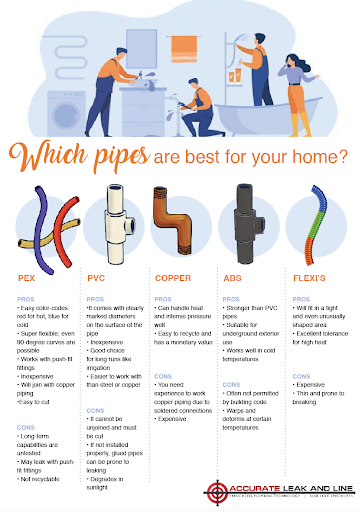
Plastic Pipes in Water Supply Systems
Plastic pipes have become the material of choice for water supply systems in recent years. They are lightweight, corrosion-resistant and long-lasting, making them the perfect choice for modern plumbing systems. Plastic pipes also provide superior flow characteristics, meaning that water can be delivered to its destination more quickly and efficiently. Furthermore, plastic is resistant to most chemical attack, which is important for the health and safety of those who use the water supply system. With all these advantages, it’s no surprise that plastic pipes are the go-to choice for water supply systems today.
Composite Pipes in Water Supply Systems
Water supply systems throughout the world depend on composite pipes for a variety of applications. Composite pipes are made from a range of materials and can be used to transport a variety of fluids. Composite pipes can be an effective solution in applications where traditional piping materials may be unsuitable. The advantages of composite pipes include their strength, durability and flexibility. They can also be moulded into custom shapes and sizes, making them ideal for a range of applications. Composite pipes also have a high degree of corrosion resistance, making them ideal for transporting water. In addition, composite pipes are lightweight and relatively easy to install, making them a cost-effective solution for many water supply systems.
Considerations when Selecting a Pipe for Water Supply
When selecting a pipe for water supply, there are several key considerations. Firstly, the pipe must be approved by your local plumbing codes or regulations. Secondly, the diameter of the pipe should be appropriate for the flow rate and pressure of the water supply. Thirdly, the pipe material must be suitable for the environment in which it will be used; for example, some metals may corrode quickly in certain water conditions. Additionally, the type of joint used should be appropriate for the size and pressure of the pipe; for example, threaded joints may not be suitable for larger pipes. Finally, the cost and maintenance requirements of the pipe should be taken into account. By taking all of these considerations into account, you can be sure to select the best pipe for your water supply needs.
FAQs About the How Many Types Of Pipes Are There In Water Supply?
1. What are the main types of pipes used for water supply?
Answer: The main types of pipes used for water supply are copper, galvanized steel, PVC, and PEX.
2. What is the difference between galvanized steel and copper pipes?
Answer: Galvanized steel pipes are made from steel that has been coated with zinc to prevent corrosion, while copper pipes are made from copper and are resistant to corrosion.
3. Are PVC and PEX pipes the same?
Answer: No, PVC and PEX pipes are not the same. PVC pipes are rigid and are most commonly used for drainage and water supply, while PEX pipes are flexible and are often used for hot and cold water plumbing.
Conclusion
In conclusion, there are many different types of pipes used in water supply systems. The most common types are copper, PVC, PEX, and CPVC. Each type of pipe has its own unique characteristics, advantages, and disadvantages. Depending on the application, the type of pipe chosen will determine how long the pipe will last and how well it will function. Ultimately, the right type of pipe for a particular water supply application should be chosen based on the specific needs of the project.


